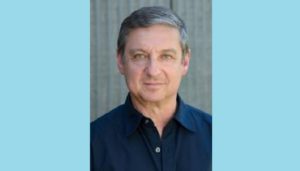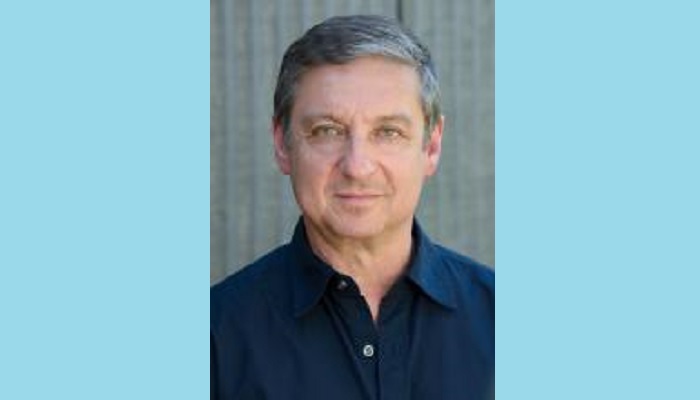Yom HaShoah, Jewish Remembrance Day, memorializes the millions of victims of persecution and mass murder during the Holocaust. On Yom HaShoah, in the nation of Israel, air raid sirens blow throughout the country, announcing two minutes of silence, during which Israeli Jews stand wordlessly in place – traffic stops, pedestrians stop, all join to remember the dead. Here in Portland – as in Jewish communities around the world – we gather to read the names of the men, women, and children murdered by Nazi Germany and its European collaborators between 1933 and 1945. On Yom HaShoah we read aloud names of those confirmed to have died in the Holocaust. There is no definitive list of those who perished. The list we read here in Portland is comprised of names archived at Yad Vashem, the Holocaust remembrance center in Jerusalem.
Memory, remembering, memorializing – these are practices anciently familiar to Jews. During Passover we remember the exodus from Egypt; at Shavuot in mid-June, we will remember the giving of the Torah to Moses on Mt. Sinai. Jews have a 4,000-year-old history and we continue to survive, in part, by remembering our history through a variety of narratives. Remembering the Holocaust is yet another traditional way to save history from oblivion.
Chaja Brajtsztajn died 1942 Treblinka; Beryl Solowjczyk died Wilna 1942; Rywka Fyhrer died Auschwitz 1943; Rachela Szucht died Warsaw 1944; Lina Stern died 1944 Theresienstadt. Throughout our Remembrance Day members of the community – dignitaries, clergy, and people like you and me – will read these names out loud in Portland’s Pioneer Courthouse Square. One cannot help but reflect on the once living spirit and body of these lost individuals. Some names sound familiar and others seem like a cluster of consonants that we can barely pronounce. But though we didn’t know them personally, they belonged to our family, and we miss them. Is the obligation to mourn them any different than that of any other family member?
Everyone has a story to tell and every story is unique, interesting, and special. In this workshop you will have an opportunity to write your story in a supportive, noncritical atmosphere. Dorothy Dworkin, an experienced author, columnist, and writing coach, will offer prompts and suggestions to get you started on writing your stories.
Every Thursday April 5-May 3. Class on April 19 will begin at 12:00 pm.
Class is located in Ballroom A.
Class size is limited to 12.
Mar: Passover Torah; Apr: Jewish perspectives on Gun Control.
A monthly discussion covering a wide range of topics that will draw on our experiences.
April’s Topic: Jewish Perspectives on Gun Control Held in the Cafe at the J
Free and open to the community.
In partnership with Congregation Neveh Shalom
Judaism; Essential Spiritual Practices, Rituals and Ethics Class
Rabbi David Zaslow, Cyrise Beatty Schachter, Rabbi Sue Morningstar and guest teachers present an eleven-week series of classes at the Havurah Synagogue – Judaism; Essential Spiritual Practices, Rituals and Ethics. Classes will be held beginning on Thursday, February 1 from 5-6 PM for eleven weeks. Online streaming is available for those who are unable to attend at this time – a code will be given upon registration. Pre-registration is required by calling 541-488-7716. Class fee is $50-$90 sliding scale. Please call for more info. The Havurah is located at 185 N. Mountain Ave. in Ashland.
Weekly learning and discussion with Rabbi Emeritus, Daniel Isaak.
Join Mel Berwin for uplifting learning and conversation – all levels welcome!
The State of Israel is one of the most important aspects of the global Jewish experience and identity in recent history. And yet it is also one of the least discussed in Jewish community. This meeting is the first step toward creating a space at TBS where we can openly discuss our feelings about, aspirations for and experiences of Israel; a place where we can learn and grow, openly engage, and build trust and community around our relationship(s) to Israel, its place in the Middle-East and the world, its past and its future. No previous experience or knowledge is necessary; you are welcome here.
Families with children ages 4-5 are invited to come check out Neveh Shalom’s education program, ALIYAH! Feel free to invite friends with children of Kindergarten age or older to join us as well.
Families will meet in the Main Lobby at the dates/times listed below for a tour with Mel and then visit our Kindergarten classes. Please RSVP to Mel Berwin at mberwin@nevehshalom.org
- Weds, Mar. 21, 4:30pm
- Sun, Apr 15, 9:30am
- Sun, Apr. 29, 9:30am
Weds, May 2, 4:30pm


What: “History of Antisemitism” 2 Credit Mini-Course featuring guest professor John Efron (UC Berkeley).
When: Sunday 4/15/18 9:00am to 5:00pm and Sunday 4/22/18 9:00am to 5:00pm
Where: Karl Miller Center Room 350 (KMC 350)
Cost: Tuition for 2 credits or suggested donation of $100.
Contact: Stacey M. Johnston | judaicst@pdx.edu | 503-725-8449
The Harold Schnitzer Family Program in Judaic Studies invites John Efron to PSU to offer a mini-course on the History of Antisemitism for class credit. This course will take place over two Sundays – April 15 and 22. Tuition costs to receive course credit. Students are also required to attend this year’s Cogan Lecture featuring Timothy Snyder.
Course Description:
This intensive mini-course, held over two Sundays, will chart the development of hostility towards Jews from antiquity to our day. In lectures and discussion, students will gain an understanding of how anti-Jewish hostility has persisted over millennia even as it has adapted to individual historical and geographic contexts. Topics include: anti-Jewish bias in the ancient world and foundational Christian sources; social and economic marginalization and expulsions in medieval Europe; the emergence of political and racial antisemitism in the nineteenth century; Nazi antisemitism; and contemporary expressions of anti-Jewish sentiment, including left- and right-wing antisemitism.
Instructor: Prof. John Efron, Koret Professor of Jewish History, University of California, Berkeley. Prof. Efron is the author of Medicine and the German Jews: A History and Defenders of the Race: Jewish Doctors and Race Science in Fin-de-Siècle Europe.
This program is made possible thanks to a grant by the Oregon Jewish Community Youth Foundation.
Registration Information for Senior Auditors and Community Members
Registration priority is determined by the university. Our goal is to admit everyone interested in participating. If you are a senior auditor or community member interested in participating in the course, please email your name and phone number to judaicst@pdx.edu to be added to the waitlist. You will be notified of your waitlist status on April 1.
Undergraduate students will be paying $329 in tuition for this course. The suggested donation for non-students is $100 ($50/day). Please consider making a donation to the Judaic Studies Program so we can continue to open these courses to the public.
Registration Dates
2/19/18 – Priority Registration begins for Graduates and Newly Admitted Students
2/21/18 – Priority Registration begins for Continuing Seniors
2/26/18 – Priority Registration begins for New & Continuing Postbacs
2/28/18 – Priority Registration begins for Continuing Juniors
3/05/18 – Priority Registration begins for Sophomores
3/07/18 – Priority Registration begins for Freshmen
3/19/18 – Priority Registration begins for Non-Degree Students*
4/01/18 – All interested auditors notified of their registration status
*For more information about registering for credit as a non-degree student, visit https://www.pdx.edu/undergraduate-admissions/other-applicants
For more information about the Senior Adult Learning Center, visit https://sites.google.com/a/pdx.edu/salc

